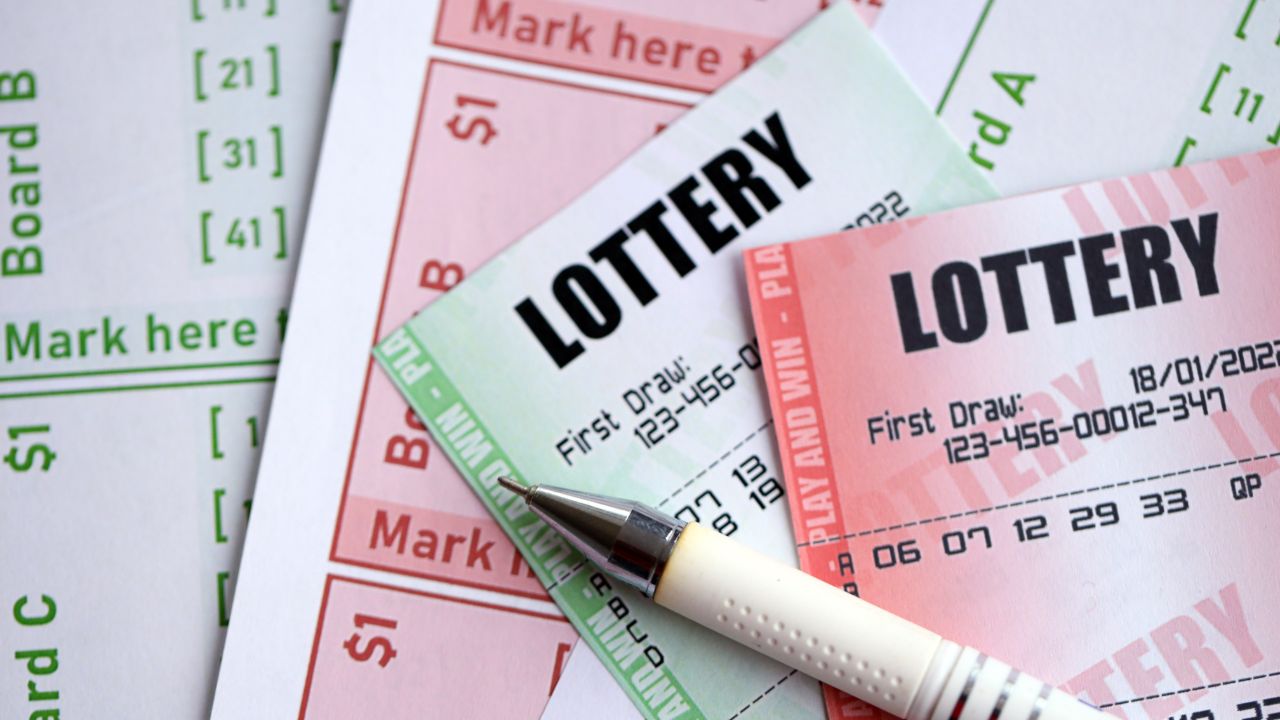Are you caught between choosing Powerball or Mega Millions? You’re not alone! With jackpots soaring into the billions, it’s tempting to play — but which game actually gives you better odds? We’ll explore the math, the money, and the must-knows to help you make an informed decision. From overall prize structures to ticket costs and drawing frequency, this deep dive into Powerball vs Mega Millions will give you the insight you need to play smarter (or at least dream wiser)! Ready to crack the code? Let’s get started.
🎯 Ready to boost your odds? Discover the best lottery prediction software and start picking smarter today!
Understanding Lottery Odds: Powerball vs Mega Millions
When people talk about “lottery odds,” they’re really referring to probability—the likelihood that a specific number combination will be drawn. Odds are usually expressed as a ratio, like 1 in 292,201,338, which means you have one chance in over 292 million to win the jackpot. It’s math, not magic.
🎯 Jackpot Odds: Powerball vs Mega Millions
Let’s get straight to the numbers:
- Powerball jackpot odds: 1 in 292,201,338
- Mega Millions jackpot odds: 1 in 302,575,350
Powerball technically gives you slightly better odds of winning the grand prize. The difference is small—but when you’re dealing with odds in the hundreds of millions, every digit counts!
💰 Secondary Prize Tiers and Overall Win Rates
Both games offer nine prize tiers, including smaller wins for matching just a few numbers. Here’s how the overall odds compare:
- Powerball (any prize): 1 in 24.87
- Mega Millions (any prize): 1 in 24
This means you’re just a tiny bit more likely to win something—anything—with Mega Millions. That could be as little as $2 or as much as a million depending on your match.
🚨 Why “Better Odds” Are Still a Long Shot
Even though Powerball has “better” odds for the jackpot, the truth is both games are astronomically difficult to win. To put it in perspective:
- You’re 50 times more likely to get struck by lightning in your lifetime than win either jackpot.
- But people still win! And someone has to eventually—odds don’t reset, but rollovers keep growing until a winner hits.
Understanding the numbers doesn’t kill the fun. It just helps you play smarter (and with realistic expectations).
🎯 Ready to upgrade your lottery game? Try the powerful Lotto Champ system today.
Ticket Cost and Value Comparison
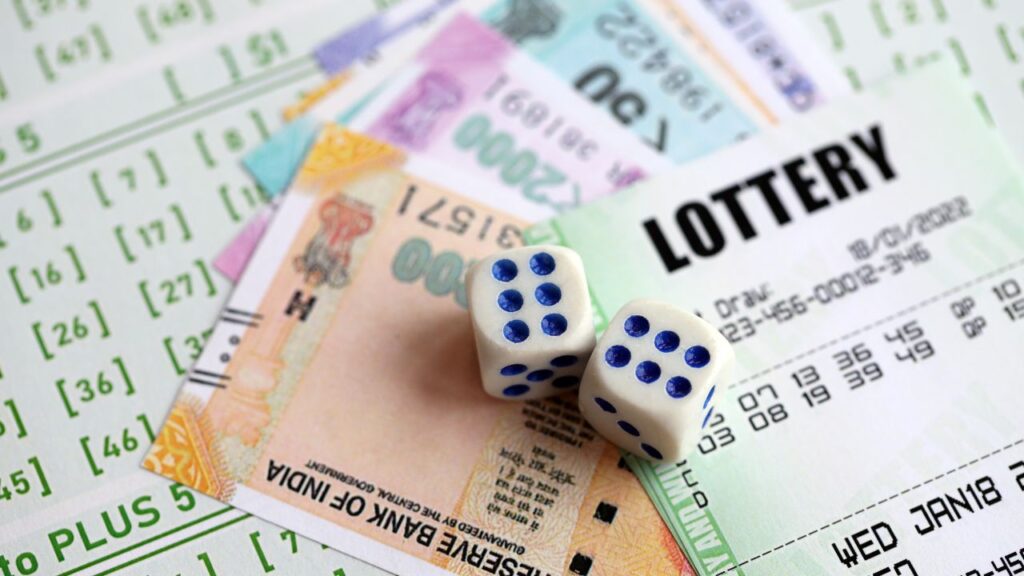
When choosing between Powerball and Mega Millions, one of the first questions that comes up is: How much does a ticket cost—and what are you really getting for your money? While both games seem similar at first glance, there are some key differences in pricing and features that could sway your decision.
💵 Powerball Ticket Cost Breakdown
- Base ticket: $2
- Power Play add-on (multiplies non-jackpot prizes): +$1
- Double Play option (gives a second chance at a new drawing): +$1
- Max cost with all features: $4
This means you can customize how much you spend based on the features you want—making it flexible for budget-conscious players.
💸 Mega Millions Ticket Cost Breakdown
- Base ticket: $2
- Megaplier add-on: +$1
- Total for full-feature play: $3
Some people assume Mega Millions is more expensive, but in reality, it’s slightly cheaper than Powerball if you’re using all available features. It also packs in powerful multiplier potential with Megaplier, especially for mid-tier wins.
💡 Value Per Dollar: Which One’s the Better Deal?
- Mega Millions gives you a slightly better chance of winning any prize (1 in 24 vs 1 in 24.87).
- Powerball has a marginally better chance at the jackpot.
- Power Play and Megaplier both offer the chance to multiply smaller winnings, but Powerball has a unique 10x multiplier during smaller jackpots.
So, the better value? It depends on what you prioritize—larger multipliers (Powerball) or slightly better base odds and consistent gameplay (Mega Millions).
🎟️ What Are You Really Buying?
Each lottery ticket gives you:
- A unique combination of numbers from two separate pools
- One entry into the main jackpot drawing
- Access to secondary prizes ranging from $2 to $1 million+
- A shot at a life-changing payout, no matter how small your chances
In the end, every dollar spent isn’t just about odds—it’s about hope, entertainment, and maybe a little strategy. Choose what fits your style and budget.
💡 Curious if software can improve your odds? See how Lotto Champ works and decide for yourself.
Prize Tiers and Payout Structures
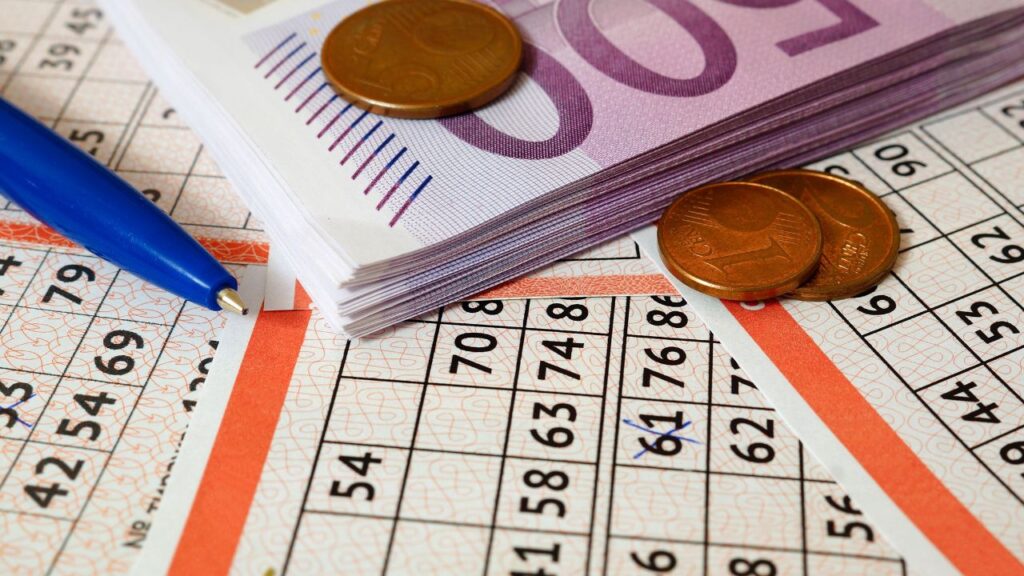
While everyone dreams of the jackpot, most lottery players will land somewhere in the lower prize tiers—if they win at all. That’s why understanding how each game structures its payouts is essential. Let’s break down how Powerball and Mega Millions compare when it comes to the nine prize tiers, second-place prizes, and smaller wins.
🧱 9 Prize Tiers in Each Game
Both Powerball and Mega Millions offer 9 distinct prize levels, from the modest $2 for matching just the bonus ball (Powerball or Mega Ball), all the way up to the jackpot. Here’s a simplified tier breakdown:
- Jackpot (5 numbers + Powerball/Mega Ball)
- Match 5 (no bonus)
- Match 4 + bonus
- Match 4
- Match 3 + bonus
- Match 3
- Match 2 + bonus
- Match 1 + bonus
- Bonus ball only
Each tier has its own odds and payout structure, with smaller prizes awarded more frequently.
💰 Match-5 Second Prizes: Big and Variable
- Powerball: $1 million base prize
- Becomes $2 million with Power Play (excluding jackpot)
- Mega Millions: $1 million base prize
- With Megaplier, can reach up to $5 million or even $10 million
This makes Mega Millions slightly more dynamic when it comes to second-tier wins, especially when the Megaplier is maxed out.
🏆 Jackpot Differences and Annuity Options
- Powerball jackpots start at $20 million
- Mega Millions jackpots start at $50 million
- Both offer cash lump-sum or 30-year annuity payments
- Annuity payments grow each year by around 5%, offering inflation protection
Mega Millions may start higher, but Powerball tends to grow faster due to more frequent drawings.
🎉 Smaller Wins and Overall Frequency
- Powerball overall odds of winning any prize: 1 in 24.87
- Mega Millions overall odds of winning any prize: 1 in 24
This means Mega Millions gives out more small prizes statistically. However, Powerball’s Power Play can supercharge even the modest wins to impressive levels.
Bottom line:
Powerball = slightly better jackpot odds and stronger Power Play boosts
Mega Millions = better odds of any win and higher second-prize potential with Megaplier
Choosing the right game comes down to what kind of win you’re aiming for—and how lucky you’re feeling!
🎲 Don’t rely on luck alone—use Lotto Champ’s proven algorithm to pick smarter numbers.
Jackpot Growth and Frequency

For many players, the most thrilling part of the lottery is chasing those enormous jackpots. But how those jackpots grow—and how often they’re up for grabs—varies between Powerball and Mega Millions. Let’s dive into the dynamics behind each game’s big-money potential.
💵 Starting Jackpot Amounts
- Powerball: Starts at $20 million
- Mega Millions: Starts at a whopping $50 million
Right out of the gate, Mega Millions looks more attractive to jackpot chasers. But starting values don’t tell the whole story.
📅 Number of Weekly Drawings
- Powerball: Draws 3 times a week — Monday, Wednesday, Saturday
- Mega Millions: Draws 2 times a week — Tuesday and Friday
That extra drawing gives Powerball a slight edge in frequency, meaning more chances to win — but also more opportunities for the jackpot to be claimed before it grows.
🔁 Rollover Mechanics and Jackpot Momentum
When no one wins the jackpot, the prize rolls over and increases.
- Powerball’s extra draw each week can lead to faster, more frequent jackpot growth
- Mega Millions, with fewer draws, builds more gradually, but with a higher starting base
Both games have the potential to hit mind-blowing numbers when they go on long rollover streaks.
🏆 Record-Breaking Jackpots
- Powerball: Holds the largest jackpot in U.S. history — $2.04 billion (Nov 2022)
- Mega Millions: Second-largest at $1.602 billion (Aug 2023)
Historically, both lotteries have produced billion-dollar jackpots, but Powerball tends to break records more often due to its extra weekly drawing and steady momentum.
Bottom line:
- Choose Powerball if you want more frequent jackpot opportunities
- Choose Mega Millions if you like larger starting prizes and slower, steady climbs toward historic highs
No matter which game you play, the excitement builds with every rollover—sometimes reaching life-changing peaks.
✅ Thousands trust Lotto Champ for better number strategies—you can too!
Multiplier Options and Add-ons
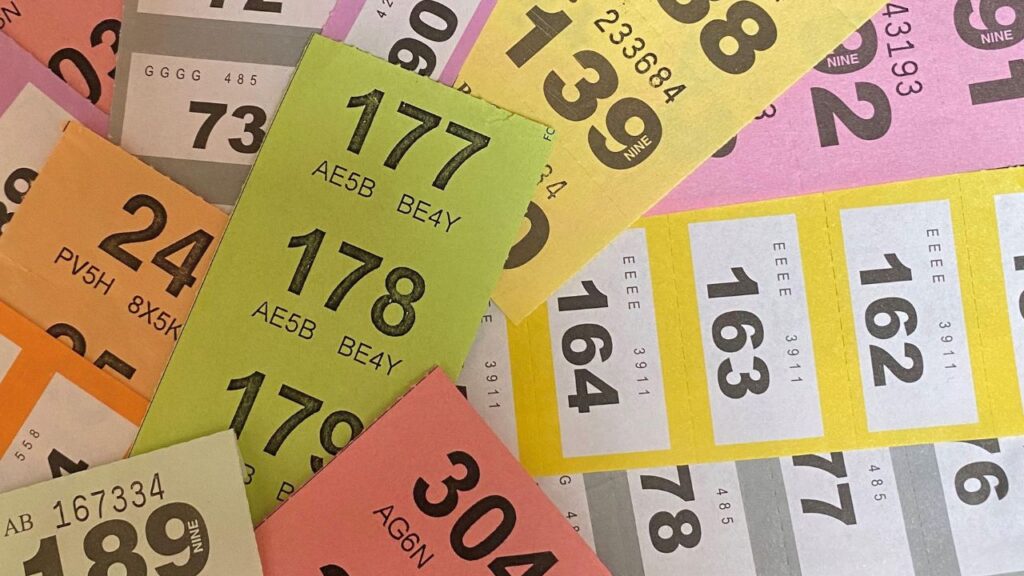
If you’ve ever wondered how to boost your potential winnings without actually hitting the jackpot, multipliers and add-ons are your secret weapon. Both Powerball and Mega Millions offer options to increase non-jackpot prizes—but they work differently, and those differences can matter depending on your playstyle and goals.
🔁 Powerball’s Power Play: Optional but Powerful
- Power Play costs an extra $1 per ticket
- It multiplies non-jackpot prizes by 2x, 3x, 4x, 5x, or even 10x
- The Match 5 prize is capped at $2 million, regardless of the multiplier drawn
- The 10x multiplier is only available when the jackpot is under $150 million
This add-on can turn a $50 win into $500—or a $500 win into $5,000—making smaller-tier prizes far more exciting.
🔢 Mega Millions’ Megaplier: Simpler but Scalable
- Megaplier also costs $1 extra
- Multiplies non-jackpot prizes by 2x, 3x, 4x, or 5x
- Match 5 prize can grow up to $5 million (or more with rare 10x promos)
- Megaplier is automatically applied to all non-jackpot wins on tickets with the feature
While it doesn’t reach Powerball’s 10x level under normal conditions, Mega Millions has a higher potential payout for second-tier prizes.
⚖️ Which Multiplier Option Offers More Realistic Value?
- Powerball: Offers more variance and potential for big boosts on lower-tier prizes
- Mega Millions: Delivers more predictable value and bigger second-tier prize boosts
- If you frequently win small prizes, Power Play gives you more excitement per win
- If you’re targeting the Match 5 prize, Megaplier offers a higher ceiling
💡 Bonus Features: Double Play & Beyond
- Powerball offers Double Play in select states
- Adds a second drawing for the same numbers
- Offers a top prize of $10 million, separate from the main game
- Mega Millions does not currently have a Double Play equivalent
- However, some states offer state-specific second chance games
If you want more chances with one ticket, Powerball’s Double Play is a solid add-on—just make sure it’s available in your state.
📈 Want smarter picks and data-driven wins? Explore the features of Lotto Champ now.
Game Mechanics and Number Pools
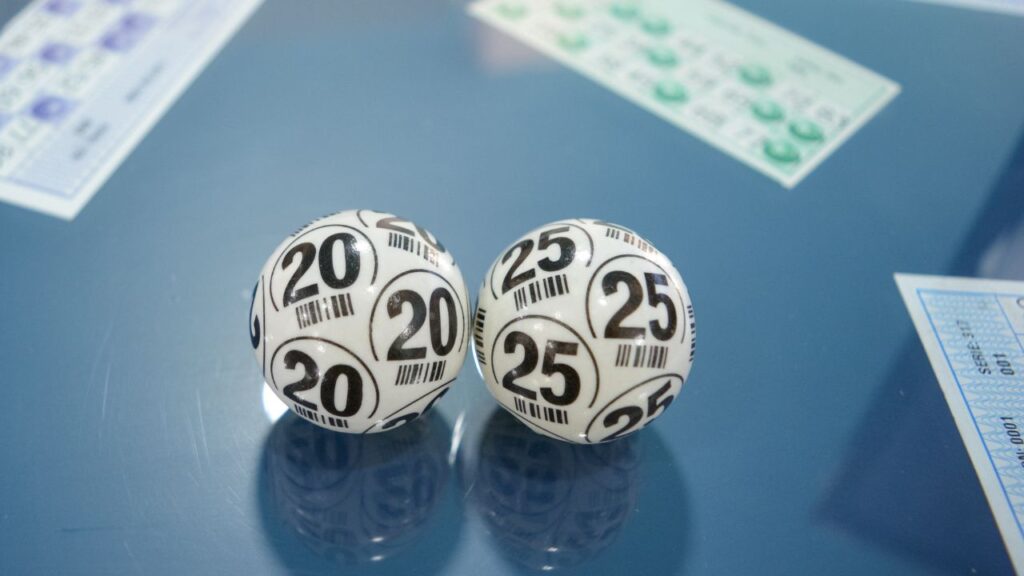
Behind every lottery ticket is a simple formula—and understanding that formula can help you better grasp your odds (and your strategy). Both Powerball and Mega Millions use dual-number pool systems, but subtle differences in format and structure have a real impact on your chances of winning.
🔢 Powerball Format: 5/69 + 1/26
- Players choose 5 white balls from a pool of 1 to 69
- Then select 1 red Powerball from a separate pool of 1 to 26
- To win the jackpot, you must match all six numbers exactly
- Total possible combinations: 292,201,338
This structure makes for steep odds, but it also enables massive rollovers and those iconic billion-dollar jackpots.
🔢 Mega Millions Format: 5/70 + 1/25
- Choose 5 white balls from 1 to 70
- Then pick 1 gold Mega Ball from 1 to 25
- Jackpot requires a full match of all six numbers
- Total possible combinations: 302,575,350
The extra number in the main pool makes Mega Millions slightly harder to win the jackpot—but the slightly smaller Mega Ball pool helps balance it out. This is why overall odds of winning any prize are a touch better in Mega Millions.
💰 Take control of your lottery strategy with this top-rated Lotto Champ tool.
⚖️ Why Mega Millions Has Slightly Better Overall Odds
Despite having tougher jackpot odds, Mega Millions:
- Offers better overall win odds (1 in 24 vs 1 in 24.87 for Powerball)
- Has larger starting jackpots ($50M vs $20M)
- Uses a Megaplier that can make non-jackpot prizes more lucrative
So while it’s harder to hit the top prize, smaller wins may come more often.
🤔 Does Picking Your Own Numbers Help?
Short answer: not really. Whether you go with a quick pick (random numbers generated by the terminal) or handpick your own:
- Every number combination has equal probability
- Quick picks win just as often as player-selected numbers, statistically
- The only benefit of choosing your own numbers is avoiding duplicate combinations if you play regularly
If you believe in birthdays, lucky numbers, or patterns, that’s great—but just know the lottery doesn’t play favorites. It’s still all about random chance.
🧠 Learn what makes Lotto Champ one of the best lottery software options in 2025.
Real-World Examples and Payout Scenarios
Let’s move beyond theory and dive into what actually happens when you spend money on Powerball or Mega Millions. By looking at practical, real-world scenarios, we can get a clearer picture of how your lottery dollars translate into potential returns—and what happens when you (hopefully!) hit it big.
🎟️ $20 Worth of Tickets: What That Buys You
- Powerball: 10 base plays ($2 each)
- Add Power Play to all = 10 x $3 = $30 total
- Mega Millions: 10 base plays ($2 each)
- Add Megaplier = 10 x $3 = $30 total
Both give you 10 chances at the jackpot and all lower tiers—but Mega Millions tickets with Megaplier tend to stretch your value on second-tier prizes.
📊 Expected Winnings by Tier (Statistically)
With average odds in mind, if you bought $20 worth of tickets:
- You’d likely win a small prize (like $2–$10) in one or two tickets
- Your chance of winning $1 million (Match 5):
- Powerball: 1 in 11.6 million
- Mega Millions: 1 in 12.6 million
- Break-even odds (win back the $2): roughly 1 in 38 for both games
So while small wins are more frequent, your odds of a life-changing prize are still slim. But real people win—someone always does.
💸 Hypothetical $100 Million Jackpot: Net Take-Home
Assume you’re the sole winner and choose the lump sum:
Powerball or Mega Millions (similar tax treatment):
- Lump sum value ≈ $52 million (net present value after deductions)
- Federal withholding (24%) = $12.48 million
- Net after withholding = $39.5 million
- Additional federal taxes owed at year-end = varies by tax bracket
- State taxes: ranges from 0% (FL, TX) to 10.9% (NY)
Final take-home: $33–38 million, depending on where you live and total taxable income.
🧾 Splitting the Jackpot: Factors That Affect Your Share
- Multiple winners = jackpot is divided equally
- A 2-winner split of $100M = $50M each before taxes
- Splits also reduce Power Play and Megaplier impact, since those are per ticket
- If you’re in a lottery pool, your take depends on the agreement terms
Key tip: Always set up a clear written agreement in pools to avoid legal headaches later!
🚀 Stop guessing—boost your winning chances with Lotto Champ today.
Should You Play Both or Just One?
With two massive national lotteries available, many players wonder whether it’s better to focus on Powerball, stick with Mega Millions, or play both. The answer depends on your risk tolerance, budget, and goals for playing in the first place.
🎯 Powerball: Best for Budget-Conscious Regular Players
- Lower starting jackpot ($20 million) makes it less flashy—but prizes can still be huge
- Three drawings per week = more chances to win without waiting as long
- Power Play feature gives strong boosts to lower-tier prizes
- Good for players who want more frequent action with consistent budget control
If you prefer steady play and don’t want to blow your lottery budget all at once, Powerball may be the better fit.
💥 Mega Millions: Higher Risk, Higher Potential
- Starts at a larger $50 million jackpot
- Offers fewer draws per week, but jackpots often climb higher before being won
- Megaplier boosts second-tier prizes more than Power Play (up to $5M+)
- Appeals to players chasing the biggest possible payouts, even with longer jackpot odds
Mega Millions may suit you if you’re comfortable with a “go big or go home” mentality.
🔄 Playing Both: More Chances or Budget Drain?
- Buying tickets for both increases overall win opportunities, but it also doubles your spend
- Without a defined budget, you risk overspending quickly
- Playing both only helps if you treat it as entertainment—not an investment
- You won’t improve your odds per game, only your exposure to more drawings
In short: playing both is fine—if your budget allows and expectations are realistic.
✔️ Responsible Play & Expectations
- Set a clear lottery budget and stick to it
- Don’t chase losses or assume a “due” win
- Treat lottery play like a fun habit, not a financial strategy
- Celebrate small wins and enjoy the excitement—not just the fantasy of billions
By aligning your lottery play with your personality and priorities, you can enjoy both Powerball and Mega Millions responsibly—and maybe even hit a life-changing win.
🔍 Looking for a software that actually delivers results? Check out Lotto Champ reviews and features.
Expert Insights: What the Math Really Says
Curious what the pros say about your odds? We’ve dug into insights from mathematicians and statisticians to understand how Powerball and Mega Millions truly stack up from a numbers perspective—and the truth may surprise you.
📣 What the Experts Say
- Dr. John Haigh, author of Taking Chances, reminds players: “Lotteries are designed so the expected return is much less than the ticket cost. It’s entertainment, not a financial plan.”
- Ron Wasserstein, former head of the American Statistical Association, said, “You’re more likely to be struck by lightning—twice—than win the jackpot.”
- Statisticians agree: the odds are long by design, and there’s no way to outsmart true randomness.
📉 Expected Value: Powerball vs. Mega Millions
- Expected value (EV) is the average amount you “should” win per ticket based on probabilities
- Powerball EV ≈ $0.32 per $2 ticket (varies by jackpot size)
- Mega Millions EV ≈ $0.34 per $2 ticket
- Both games return less than 20 cents on the dollar, statistically
Bigger jackpots slightly increase EV, but never flip it positive—even when the prize hits $1 billion+.
❌ Why No Strategy Beats the Odds
- Systems like wheeling or frequency tracking may help with coverage, but they don’t improve individual ticket odds
- All combinations remain equally likely, no matter what patterns or dates you use
- Quick picks and hand-picked numbers perform the same in the long run
- The games are built on random draws, verified and protected against predictability
🎭 Think of the Lottery as Entertainment
- Lottery tickets are not investments—they’re a form of entertainment
- Just like going to a movie or buying a scratch-off for fun, it’s about the experience and anticipation
- Play for fun, dream big—but never bet the farm
📊 Start making data-backed decisions—unlock the power of Lotto Champ now.
📍 Conclusion
When it comes to Powerball vs Mega Millions, both games offer thrilling jackpots and life-changing potential—but each has its quirks. Powerball gives you more weekly drawings and slightly better odds on the jackpot, while Mega Millions delivers higher starting jackpots and a more rewarding second-tier prize structure.
No matter which game you play, remember this: the odds are long, but that’s part of the fun. Playing the lottery should always be about entertainment and hope, not expectation.
🎯 Want to play smarter? Check out the best lottery prediction software to improve your strategy and explore tools designed to help you play with more confidence. Good luck—and play responsibly!

